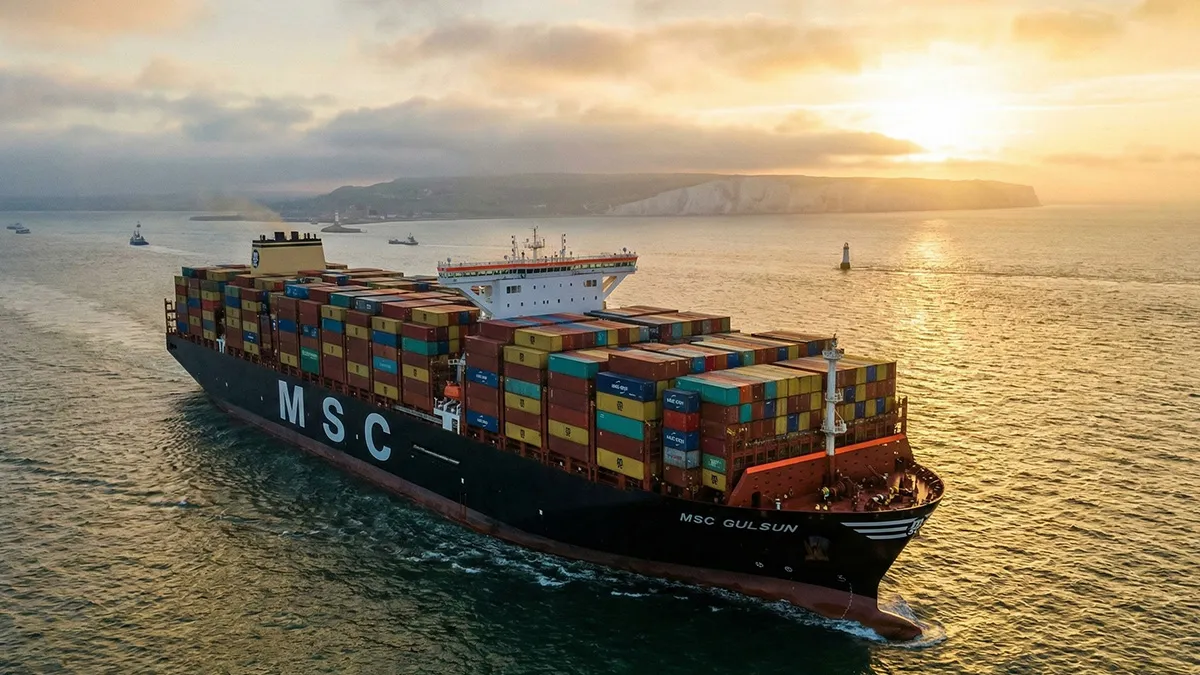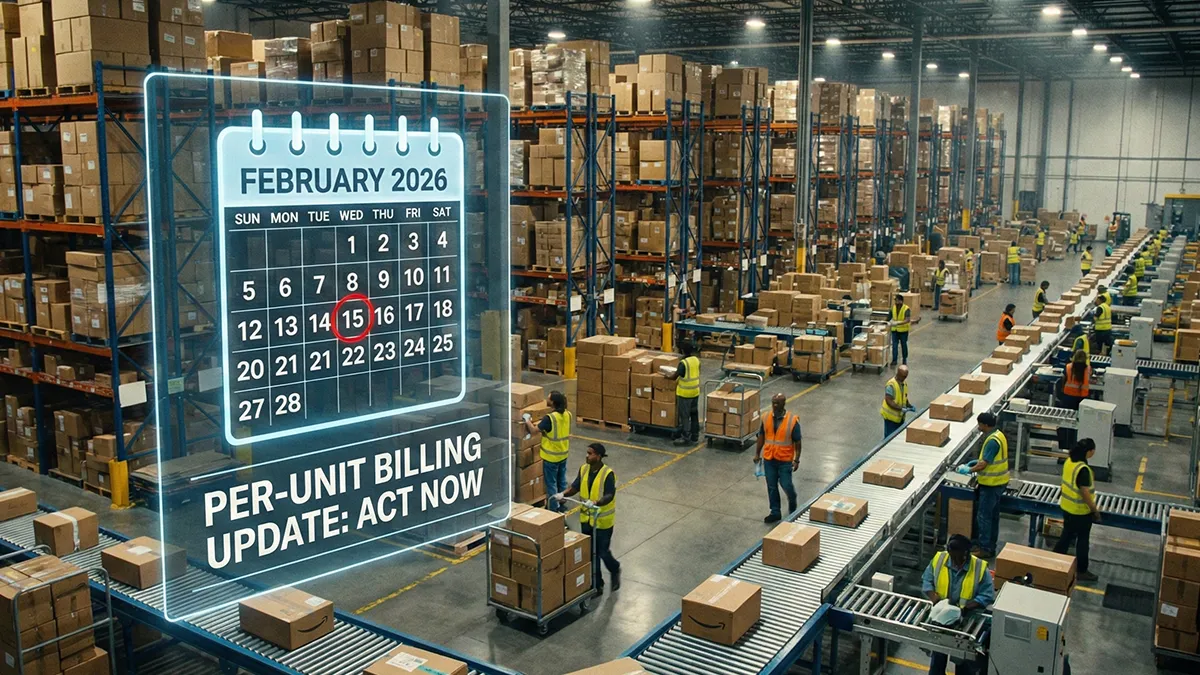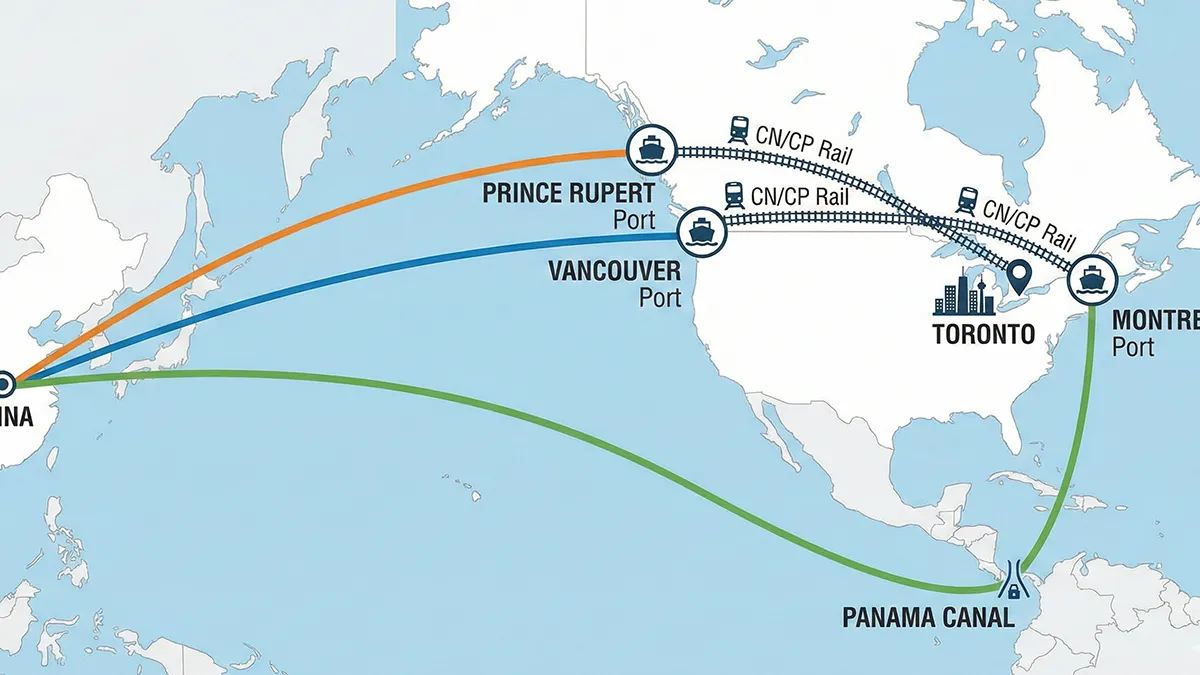What Does DDP Mean? Delivered Duty Paid Shipping Explained

Imagine this: you purchase goods from an overseas supplier, and they arrive at your warehouse in the USA. All shipping costs, insurance, and import taxes are already paid. The customs paperwork is handled. All you have to do is accept the delivery. This seamless, all-inclusive scenario is what the Incoterm Delivered Duty Paid (DDP) is designed to achieve.
As one of the official Incoterms established by the International Chamber of Commerce (ICC), DDP places the maximum responsibility on the seller. The seller arranges and pays for the entire shipping journey, including export clearance, international transport, and—most importantly—import clearance, duties, and taxes in the buyer's country. For the buyer, it’s the simplest possible arrangement.
As a logistics partner with over 25 years of experience, we know that while DDP offers ultimate convenience for the buyer, it presents the highest risk for the seller. This guide will break down what DDP means in practice, its pros and cons, and how to decide if it’s the right strategy for your business.
What Are the Seller's and Buyer's Responsibilities Under DDP?
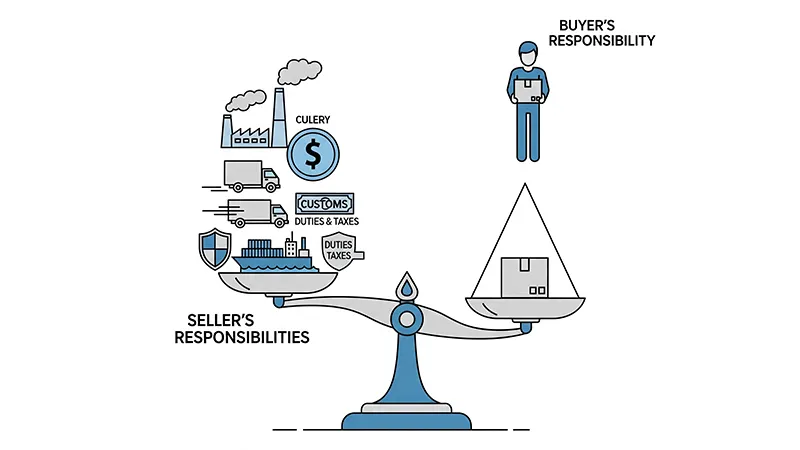
Under DDP, the roles are very clearly defined, representing one extreme of the Incoterms spectrum.
The Seller's Obligations
The seller is responsible for virtually everything until the goods are delivered to the buyer's named destination and ready for unloading.
-
All Transportation Costs: Including pickup, inland transport in the origin country, main international freight (sea or air), and final-mile delivery in the destination country.
-
Export Customs Clearance: Preparing all documentation and handling export formalities in their own country.
-
Import Customs Clearance: This is the key differentiator of DDP. The seller must handle all import formalities in the buyer's country. This includes hiring a customs broker and preparing import declarations.
-
All Duties & Taxes: The seller pays for all import duties, tariffs, and taxes (like VAT/GST) required to clear the goods.
-
All Risk: The seller bears all risk of loss or damage to the goods until they are delivered to the buyer's destination.
The Buyer's Obligations
The buyer's role is minimal, making it a highly attractive option.
-
Receive the Goods: The buyer's primary job is to be ready to receive the shipment at the agreed-upon destination.
-
Unload the Goods: Technically, the buyer is responsible for unloading the cargo from the truck, though this can be negotiated.
-
Provide Assistance: The buyer must provide any necessary documents or information (like a tax ID) if required by customs authorities in their country for the seller to complete the import process.
The DDP Shipping Process Step-by-Step
A DDP shipment is a fully orchestrated, door-to-door service managed by the seller.
-
Agreement: The seller and buyer agree to "DDP [Named Place of Destination]" in the sales contract. The seller then factors all anticipated logistics costs into the product price.
-
Export & Origin Handling: The seller prepares the goods and arranges for them to be picked up, transported to the port or airport, and cleared through customs in the origin country.
-
Main International Transit: The seller books and pays for the sea or air freight to transport the goods to the destination country. During this time, the seller carries all the risk.
-
Import & Customs Clearance: Upon arrival, the seller—through their logistics partner—manages the entire import process. This is where having a partner with in-house customs clearance capabilities is critical. We handle the paperwork and pay all duties and taxes on the seller's behalf.
-
Final Delivery: Once cleared, the goods are transported from the port or airport to the buyer's specified location. Our end-to-end, one-stop logistics solutions ensure this final leg is handled smoothly. When the goods are available for unloading, the delivery is complete, and risk transfers to the buyer.
DDP vs. Other Key Incoterms (DAP, FOB, EXW)
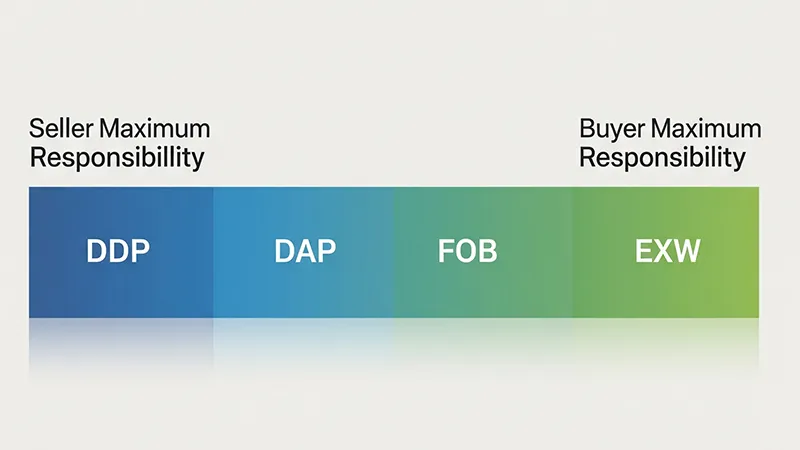
To truly understand DDP, it’s best to compare it to other common Incoterms.
| Incoterm | Seller Pays for Transport To... | Seller Handles Import Clearance & Duties? | Risk Transfers from Seller to Buyer at... |
| DDP (Delivered Duty Paid) | Buyer's named destination | Yes | Buyer's named destination, ready for unloading. |
| DAP (Delivered at Place) | Buyer's named destination | No | Buyer's named destination, ready for unloading. |
| FOB (Free On Board) | "On board" the vessel at the origin port | No | The moment goods are loaded onto the vessel. |
| EXW (Ex Works) | Nowhere. Goods are at the seller's factory. | No | The seller's factory, before loading. |
Key Differences:
-
DDP vs. DAP: This is the most common point of confusion. Both involve delivery to the buyer's location. However, with DAP, the buyer is responsible for import clearance and paying duties/taxes. With DDP, the seller handles everything.
-
DDP vs. FOB: These are near-opposites. With FOB, the seller's job is done once the goods are loaded onto the ship at the origin port. The buyer takes over all costs, risk, and logistics from that point forward.
-
DDP vs. EXW: These are polar opposites. Under EXW, the seller’s only responsibility is to make the goods available at their own premises. The buyer handles and pays for the entire journey.
When Should You Use DDP Shipping?
DDP is a powerful tool when used in the right scenarios, typically when convenience for the buyer is the top priority.
-
E-commerce & B2C Shipments: DDP is the standard for cross-border e-commerce. Customers expect a seamless, "no surprise fees" delivery experience.
-
Selling to Inexperienced Importers: If your buyer is a small business or new to international trade, handling customs can be a major barrier. DDP removes this barrier.
-
High-Value Goods & Samples: For shipping valuable items or samples, DDP ensures a premium, white-glove service from start to finish.
-
Strategic Advantage: Offering DDP can be a key differentiator to win a competitive deal, as it simplifies the procurement process for your customer.
Key Risks of DDP for Sellers (and How to Mitigate Them)
The convenience DDP offers the buyer comes with significant risk for the seller.
-
Underestimated Costs: The biggest risk is miscalculating the complex web of duties, taxes, and fees in the destination country, which erodes your profit margin.
-
Mitigation: Work with an expert logistics partner who can provide a detailed, all-inclusive landed cost calculation before you finalize your price.
-
-
Customs Delays: Any issues with paperwork or inspections in the buyer's country are your problem and your cost to resolve.
-
Mitigation: Partner with a freight forwarder who has deep expertise and their own customs brokerage in the destination country. This ensures compliance and swift issue resolution.
-
-
Local Regulations: Some countries have complex import rules or may not allow a foreign entity to act as the Importer of Record.
-
Mitigation: Your logistics partner should advise you on these regulations beforehand and have solutions in place, such as acting as your agent.
-
Frequently Asked Questions (FAQ)
-
1. Is the seller required to buy insurance under DDP?
-
No, the Incoterms rules do not obligate the seller to insure the goods. However, since the seller bears all risk until final delivery, it is highly recommended and standard practice for the seller to purchase cargo insurance.
-
-
2. Does DDP include unloading the goods from the truck?
-
No. According to the official Incoterms 2020 rules, the seller's responsibility ends when the goods are at the destination and "ready for unloading." The buyer is responsible for the actual unloading unless specifically negotiated otherwise in the sales contract.
-
-
3. Can DDP be used for both sea and air freight?
-
Yes, DDP is a flexible term that can be used for any mode or combination of transport, including sea freight, air freight, and ground transport.
-
This section is designed for FAQPage Schema.
Navigate DDP with an Expert Partner
DDP shipping offers unparalleled convenience for your customers but requires flawless execution from your logistics team. Attempting to manage it without deep expertise in the destination country can be a costly risk.
Our team specializes in creating seamless, end-to-end DDP solutions. We leverage our proprietary technology, direct carrier contracts, and in-house customs expertise to manage the entire process for you—from factory to final destination. We provide the control and visibility you need to offer DDP confidently.
Ready to simplify your international sales process? Contact us for a comprehensive consultation on your shipping strategy.
